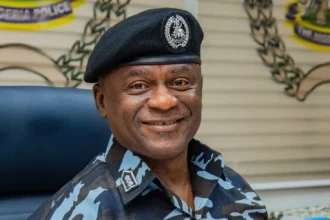At least 1,006 foreign nationals officially became Nigerian citizens between 2017 and 2023, according to The PUNCH.
These foreigners received their citizenship either by naturalisation or registration through processes handled by the Ministry of Interior and approved by the Presidency. While some were presented publicly with certificates at investiture ceremonies, others completed the process quietly through regular administrative channels.
The first public investiture was held on May 17, 2017, at the State House Banquet Hall in Abuja, where former President Muhammadu Buhari handed citizenship certificates to 335 individuals. Among the new citizens was Lara Fortes, a model from Ethiopia and the wife of former Edo State Governor Adams Oshiomhole.
At that event, the then Minister of Interior, Abdulrahman Dambazau, explained that out of the 335, a total of 245 became citizens by naturalisation, while 90 were granted citizenship by registration as spouses or children of Nigerians. Dambazau added that all applicants had passed strict security screenings and were approved by the Federal Executive Council.
There was a long break after 2017, partly due to COVID-19 and administrative delays. A second investiture took place on September 15, 2022, when President Buhari again presented certificates to 286 foreigners. This group included 86 Lebanese nationals, 14 Britons, and four Americans. Of the total, 208 were granted citizenship by naturalisation and 78 through family connections to Nigerian citizens.
The final known investiture happened on May 27, 2023, just two days before President Buhari left office. It was overseen by former Vice President Yemi Osinbajo, who handed certificates to 385 successful applicants at the Nigeria Correctional Service headquarters.
Then Interior Minister, Rauf Aregbesola, said these two ceremonies alone — 2022 and 2023 — account for 671 new citizens, the largest number under any Nigerian government.
The Nigerian Constitution and Citizenship Act allow the President, with advice from the Federal Executive Council, to grant citizenship in two ways. First, by naturalisation, which applies to those who have lived lawfully in Nigeria for at least 15 years, including the last 10 years continuously. Second, by registration, which is for spouses or children of Nigerian citizens, or those born abroad to Nigerian parents.
The process involves submitting forms to the Ministry of Interior, followed by background checks by the Department of State Services (DSS), and tax and criminal record checks by other agencies. Once approved, applicants take an Oath of Allegiance and receive a certificate and a Nigerian passport.
Since President Bola Tinubu took office in May 2023, no public citizenship ceremonies have been held. However, the current Interior Minister, Olubunmi Tunji-Ojo, confirmed that several approved applicants are currently undergoing security vetting by the DSS before final approval.











